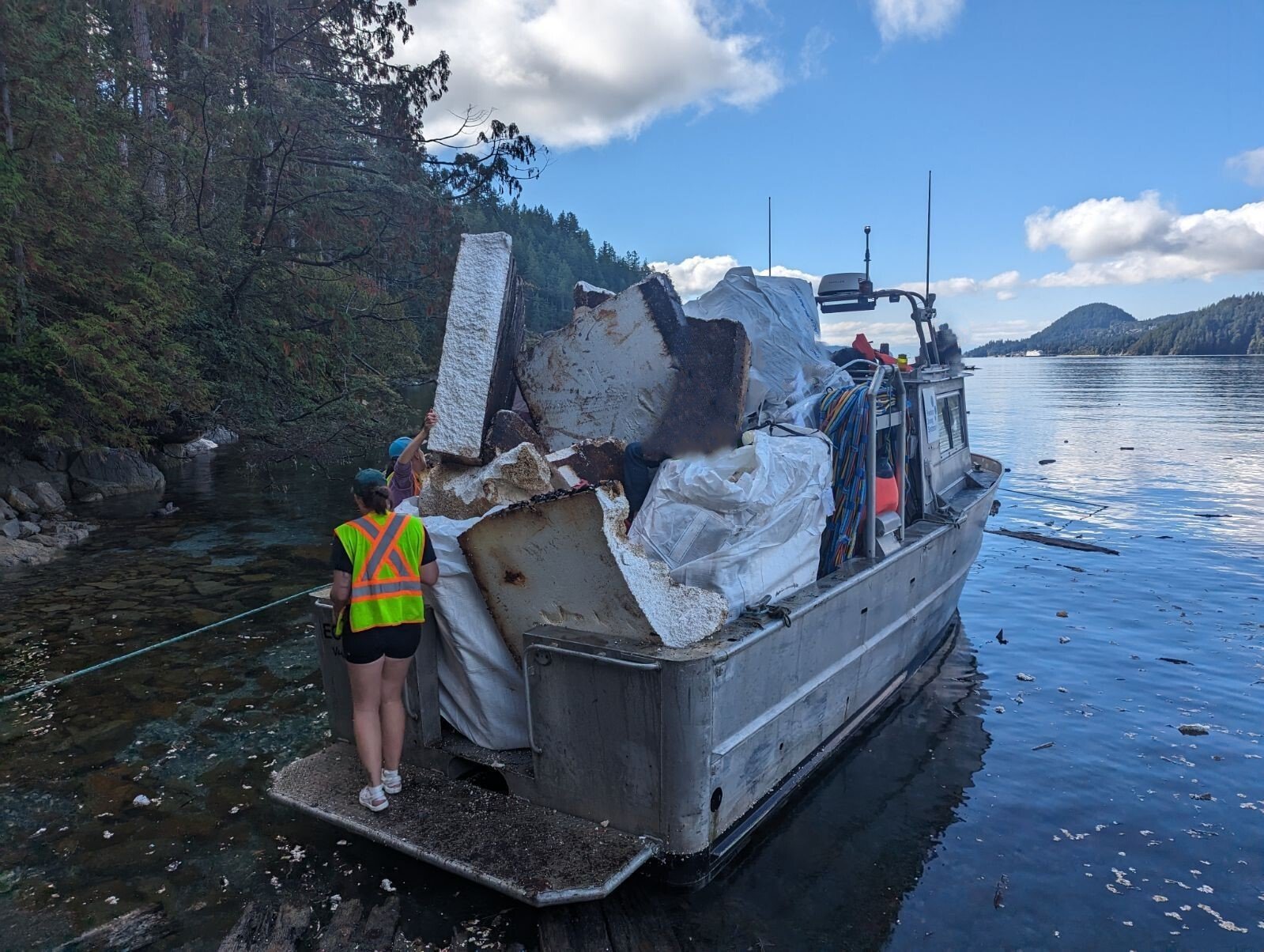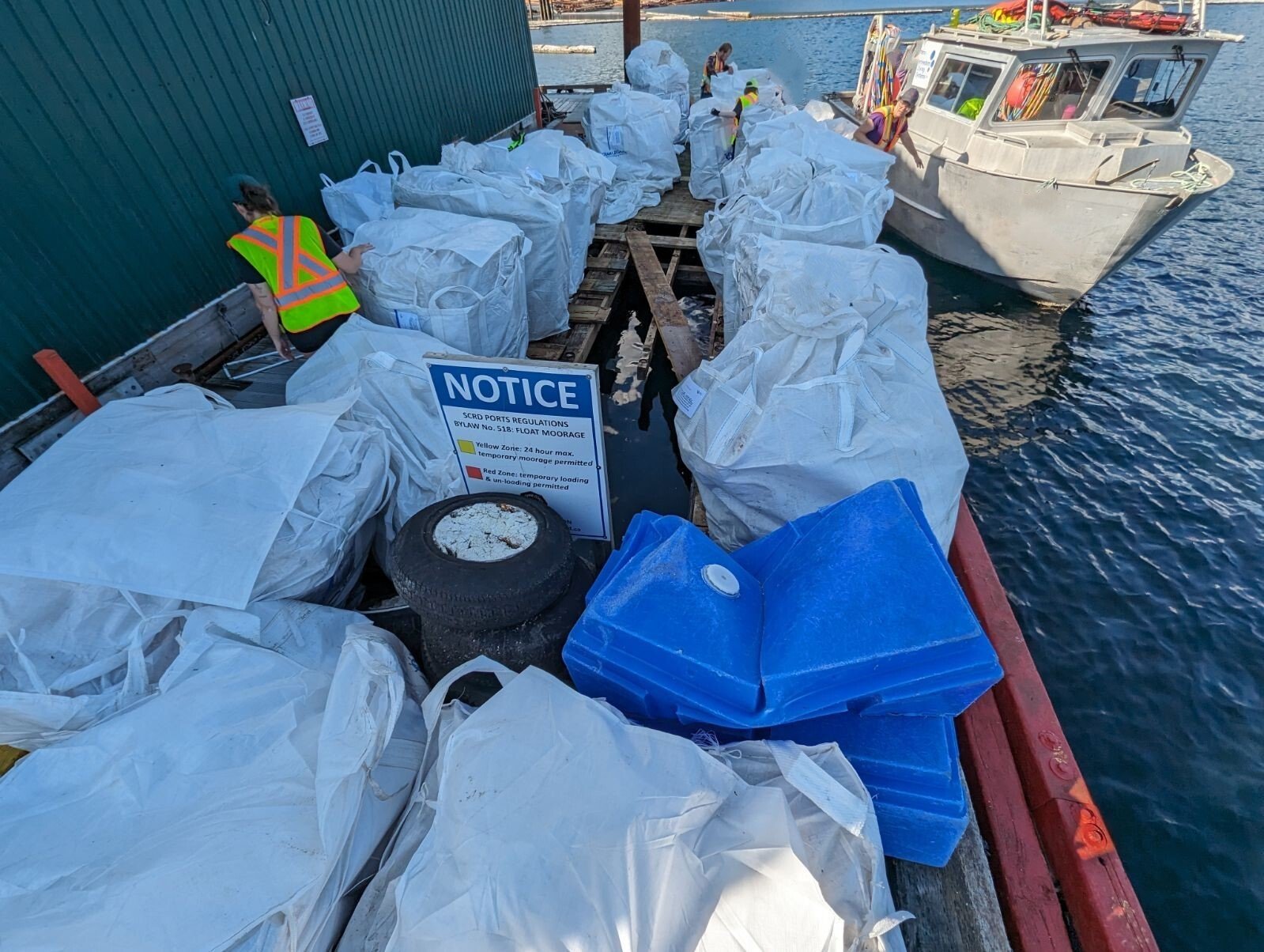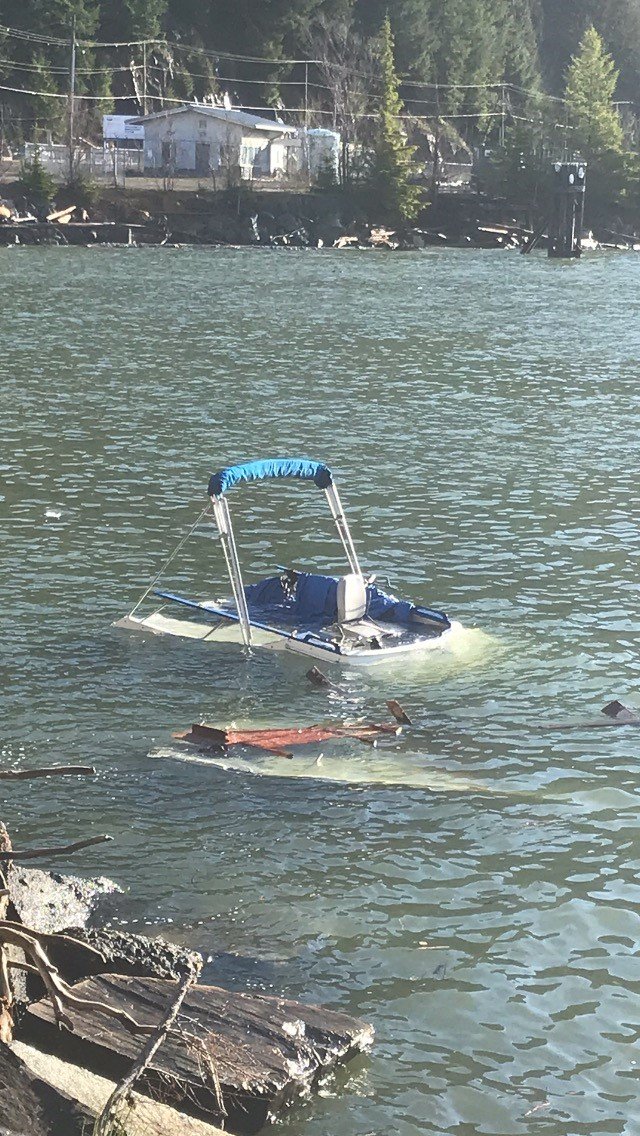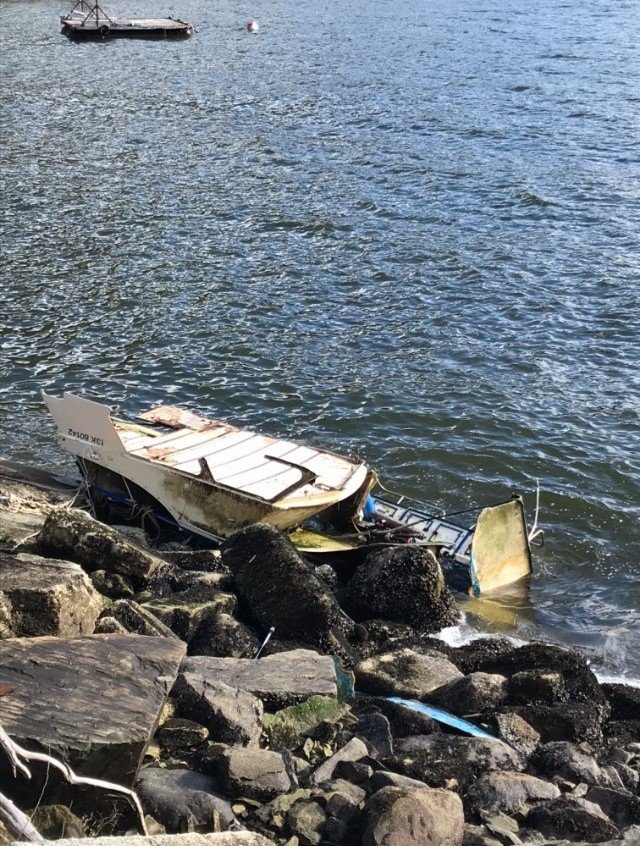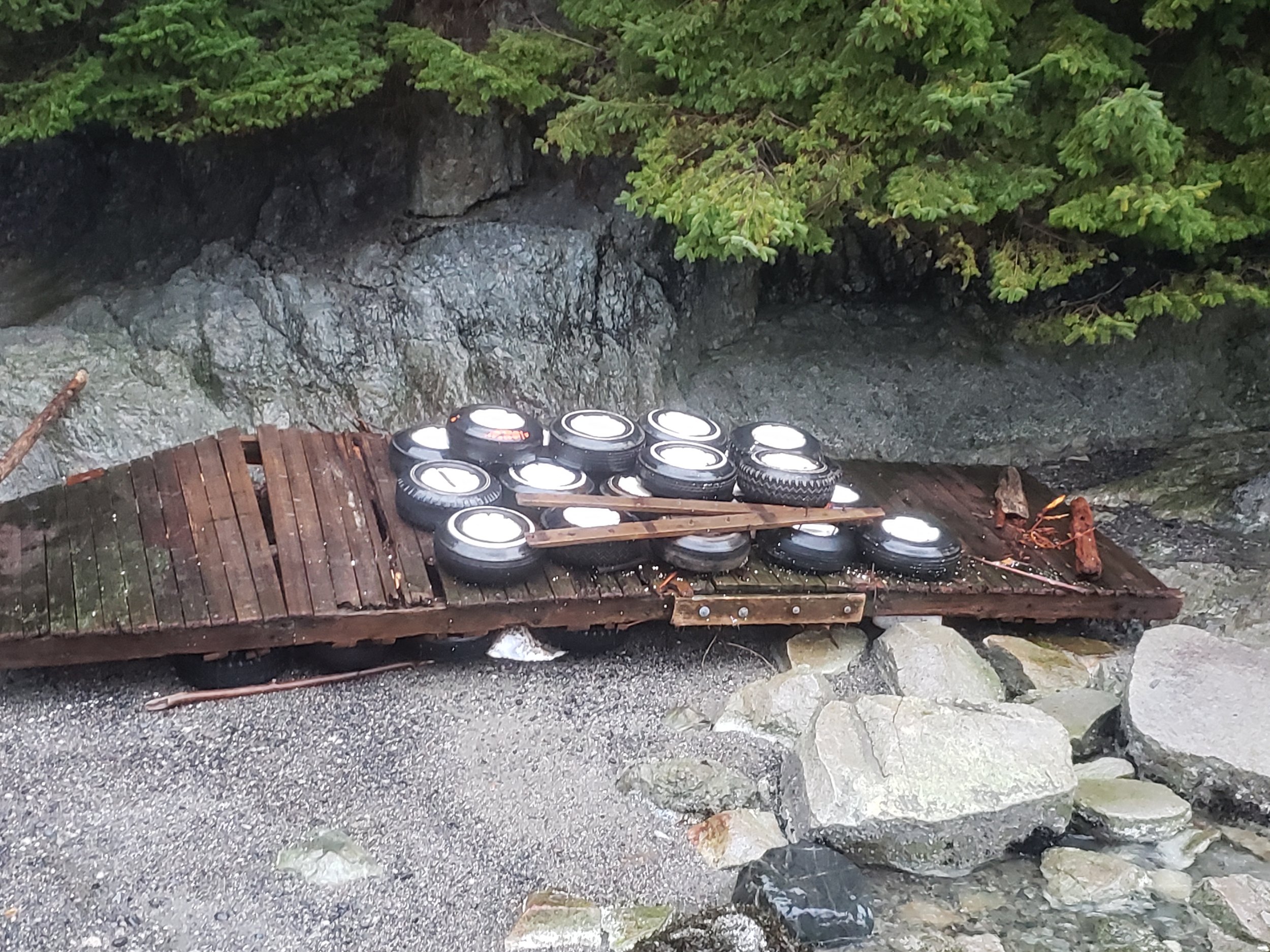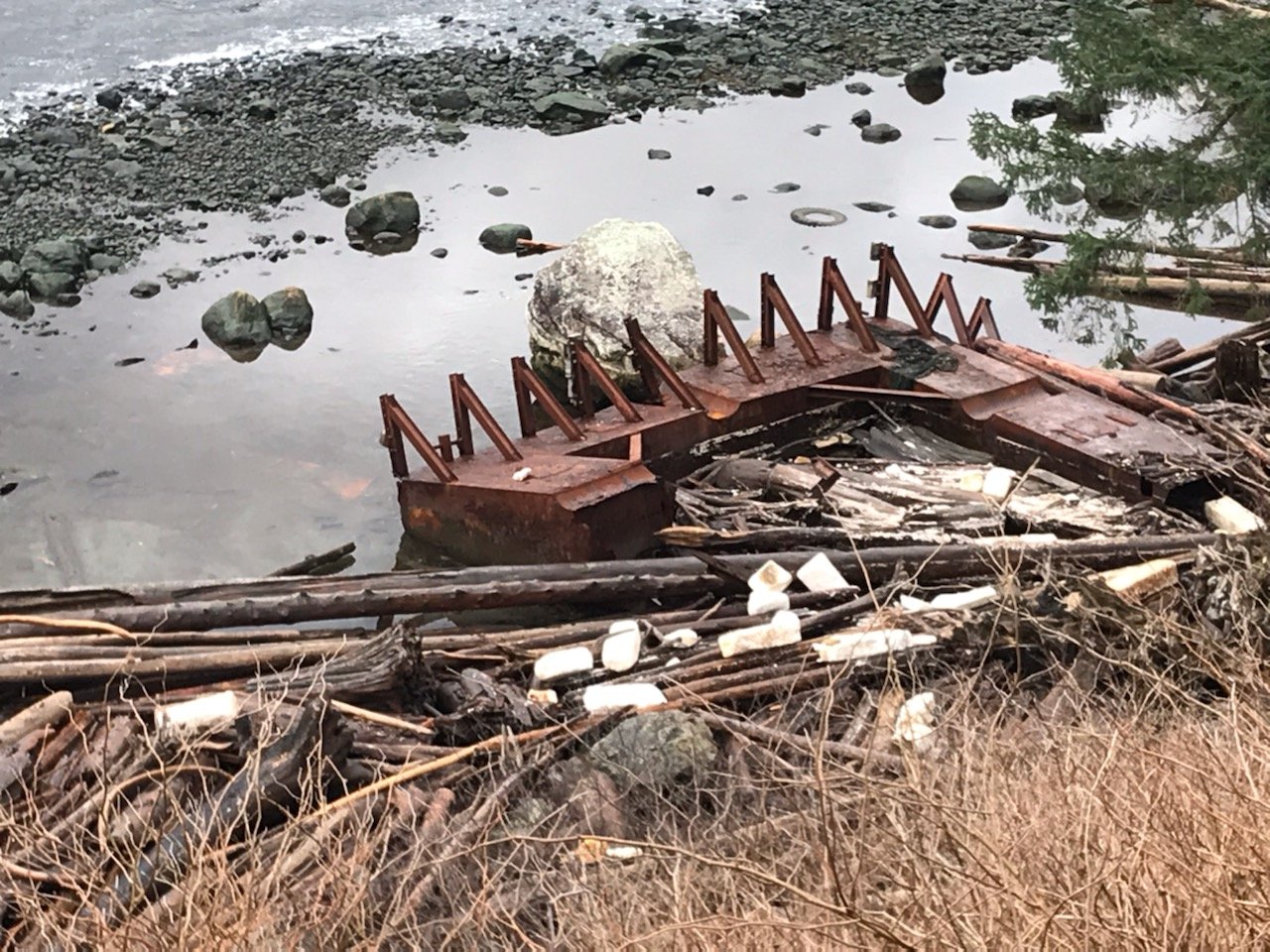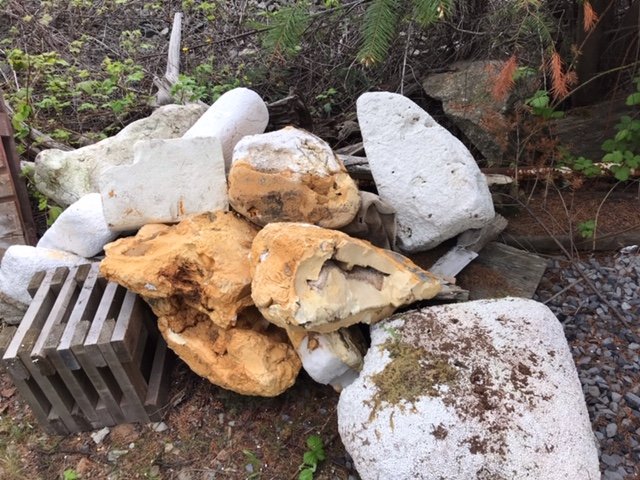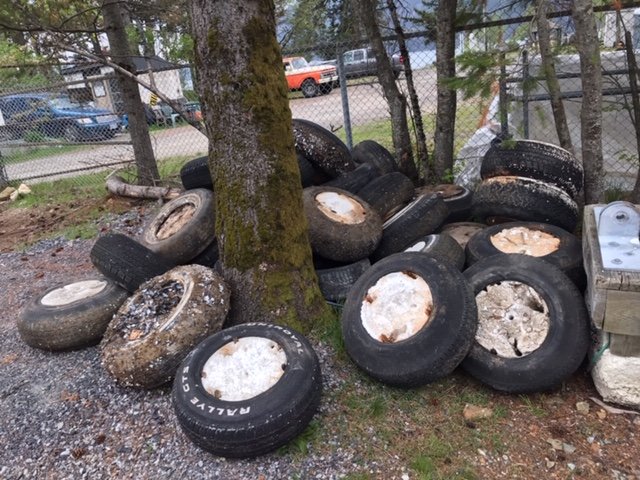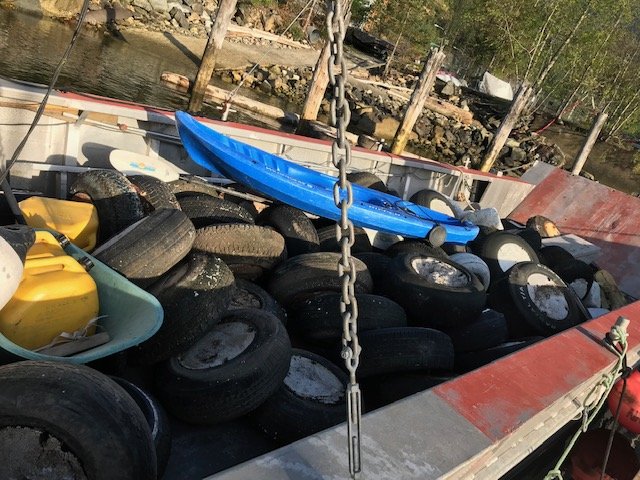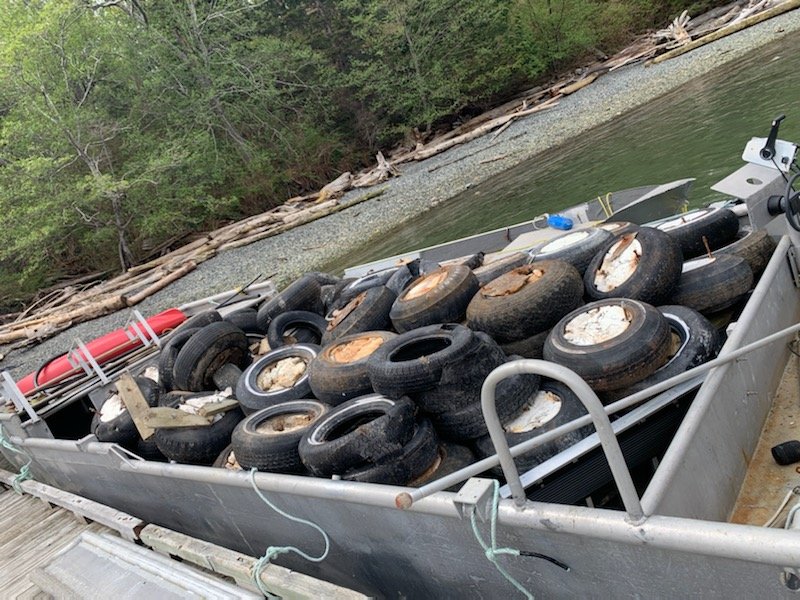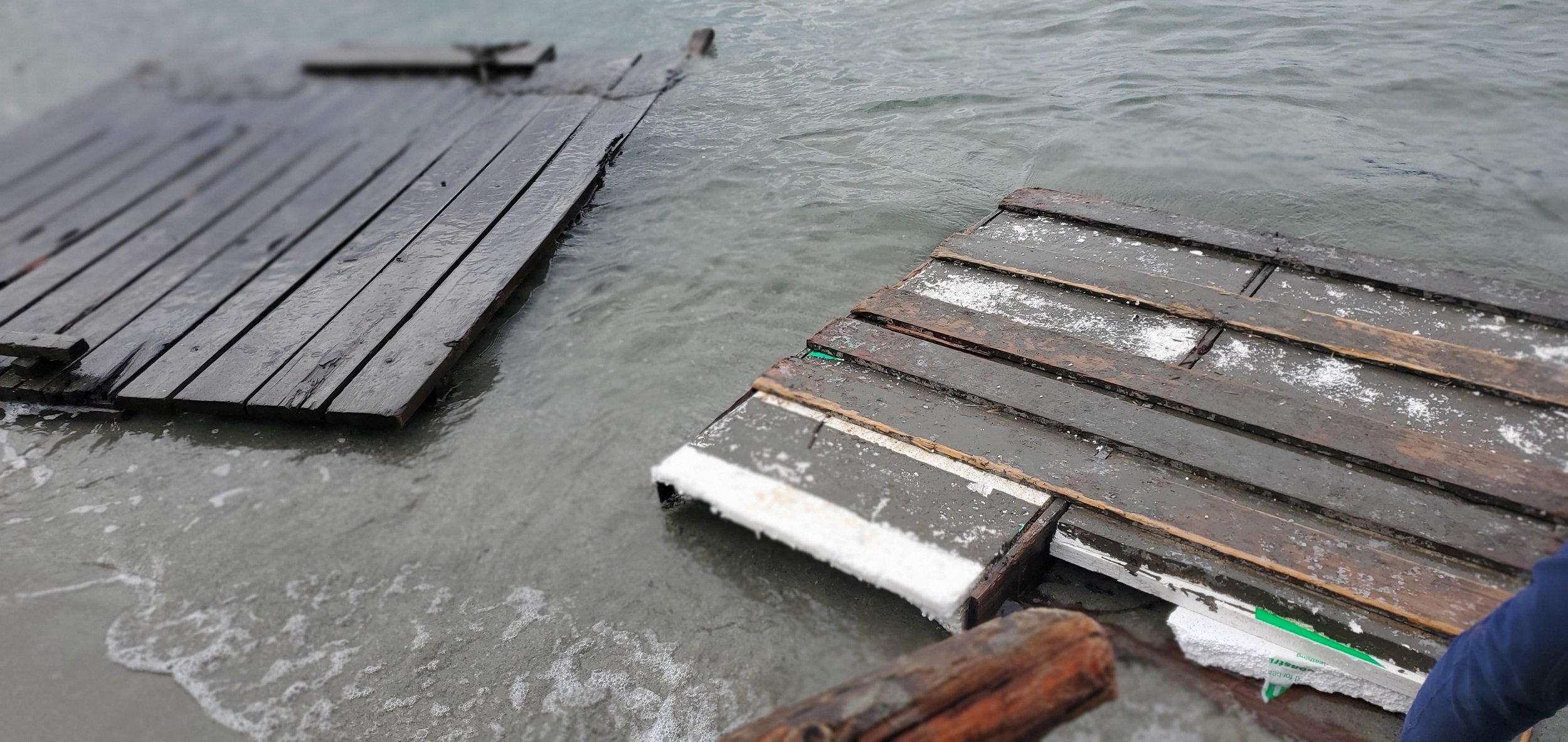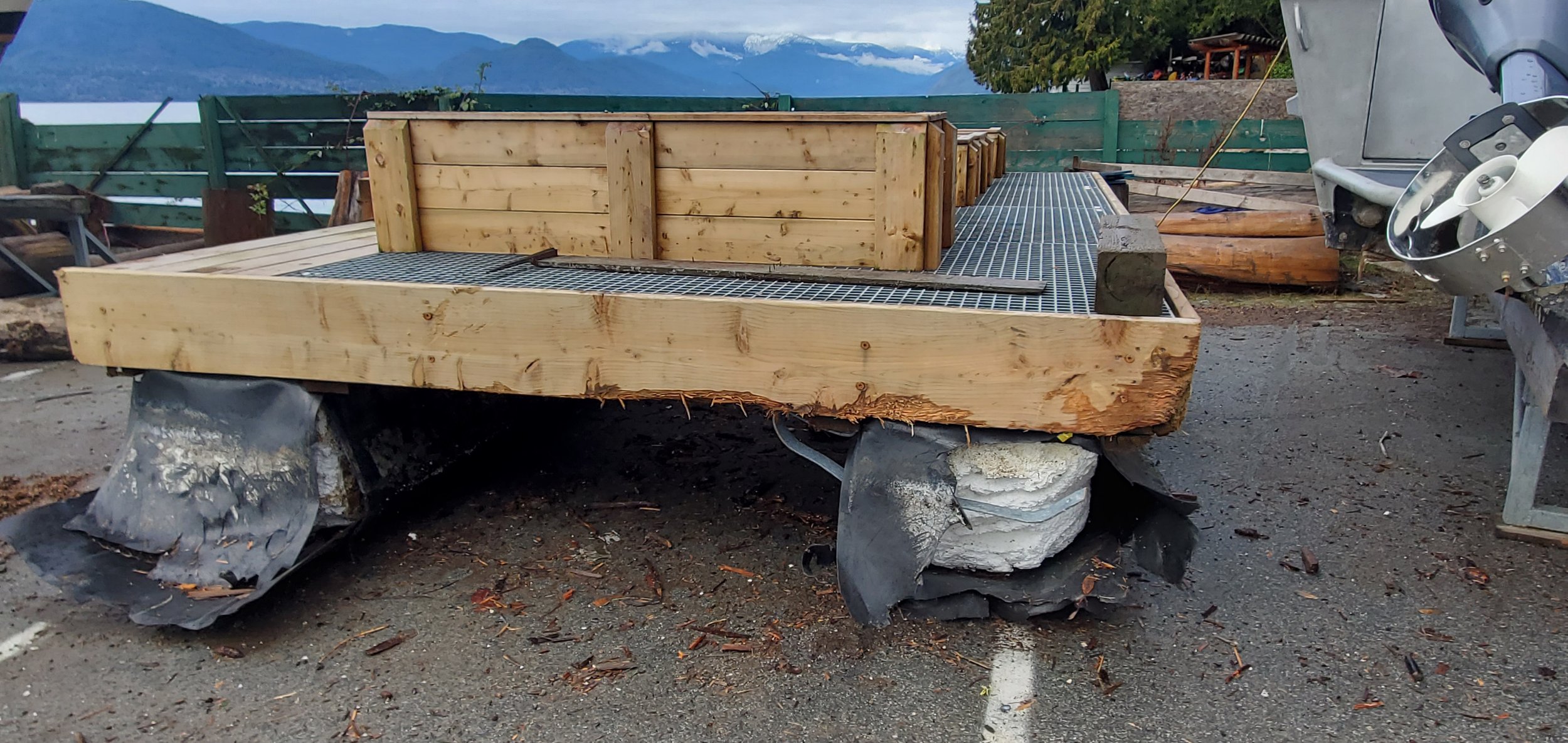Tackling Marine Debris
The bays and shorelines of our biosphere region are catchments for marine debris that washes up with the currents and tides. Pollution is harmful to the overall well-being of our region, our home. We in the region have the capability of keeping our marine areas pollution-free. There are many groups contributing to beach cleanups, however larger blocks of styrofoam, old creosoted logs, docks, styrofoam filled tyres and other waste is difficult and costly to remove. Our Átl'ḵa7tsem / Howe Sound marine debris fund supports collaboration with citizen groups, the Marine Stewardship Initiative who maintain the Marine Debris Tracking Tool, and Ocean Legacy to tackle these cleanups. Small or large, your donations greatly help replenish our fund each year.
Charitable donations can be made here to this fund.
The pollution of Átl'ḵa7tsem / Howe Sound from marine debris is a challenge much more common than most people realize.
Every summer, citizens around Howe Sound care for their beaches, conducting shoreline clean-ups and picking up and disposing of garbage that washes ashore. But it is the larger debris that often costs money with no opportunity for recovery that is much more challenging. Fortunately, many good Samaritans are working behind the scenes to coordinate clean-up efforts of those larger pieces – essential work that requires funding.
Ocean Legacy received funding from the Provincial Clean Coast, Clean Waters Initiative Fund in 2024. The Howe Sound-wide clean-up took place in September. Read the report on the clean up from the Marine Stewardship Initiative, partners on the project. However, marine debris doesn’t end.
Thanks to the West Vancouver Community Foundation’s Give Where You Live Campaign 2023, we raised $12,216 for our Howe Sound Marine Debris fund. In October 2024, we contacted Ocean Legacy who responded quickly to a report of heavy creosoted timbers washed up on a remote beach on Bowen Island. The team successfully removed 16,870 kg (almost 17 tons!) of timbers and 113 kg of plastic, metal, and tarp. This was reported to the authorities early, but it was up to the community to deal with the cleanup.
Winter storms, king tides, rising sea levels, and erosion along creeks during heavy rain events are becoming more frequent. With constantly changing tides and currents, many of Howe Sound’s beaches are catch-basins for all types of debris that result from these weather events.
Woody debris from log sorting operations, along with trees and stumps from eroding creeks and shorelines can cause damage and choke up the beaches. Neglected vessels and salvaged materials take on water, break apart in the storms, and end up sinking or breaking loose, causing pollution and navigation hazards.
Old and sometimes new docks become damaged in storms. Some docks are also now being damaged by sea lions. Many docks contain styrofoam, one of the most common pollutants in Howe Sound as it breaks apart and becomes embedded in the tide lines on beaches. See some of the many examples in the photos below.
To learn more about resources for tackling this issue, and what to do when you see wrecked boats and marine debris, click here.
A committee of the Howe Sound Biosphere Region Initiative Society administers the fund distribution. If you have a big clean-up project be sure to contact us. For more information, contact howesoundbri@gmail.com.


